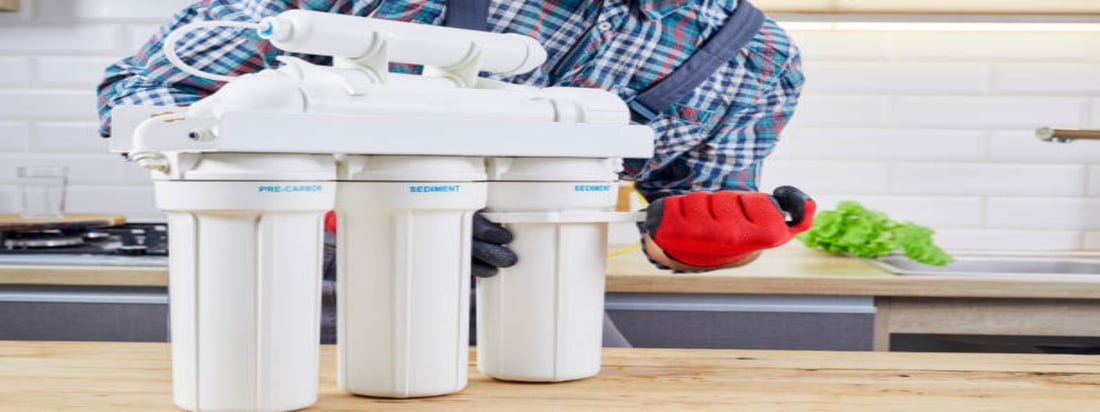The Importance of Removing Chlorine from Your Water Supply
Chlorine is commonly used in municipal water treatment facilities to disinfect water and kill harmful bacteria. While it serves an important purpose, chlorine can have negative effects on our health and overall well-being. Ingesting chlorine through drinking water or inhaling it while showering can lead to skin and respiratory irritations, dry hair and skin, and even increased risks of certain types of cancer. Therefore, it is crucial to invest in a whole-house water filter that effectively removes chlorine from your water supply. In this article, we will explore the best options available in the market for filtering out chlorine and providing you with clean and chlorine-free water.
1. Reverse Osmosis Systems
Reverse osmosis systems are widely recognized as one of the most effective methods for removing chlorine from water. These systems use a semipermeable membrane to remove not only chlorine but also a wide range of other contaminants, including heavy metals and sediments. The water passes through the membrane, leaving behind chlorine and other impurities. Reverse osmosis systems are highly efficient and can remove up to 99% of chlorine from your water supply.
2. Activated Carbon Filters
Activated carbon filters are another popular choice when it comes to removing chlorine from water. These filters use activated carbon, often in the form of granules or blocks, to trap and absorb chlorine molecules. The activated carbon has a large surface area, providing ample contact time for the chlorine to be adsorbed. Activated carbon filters are effective in removing chlorine, as well as improving the taste and odor of the water.
3. KDF Filters
KDF (Kinetic Degradation Fluxion) filters are designed to remove chlorine and other contaminants through a process known as redox (reduction-oxidation). These filters contain a combination of copper and zinc granules that create an electrochemical reaction, converting chlorine into chloride. KDF filters are effective in removing chlorine, heavy metals, and even some bacteria. They also have the added benefit of reducing scale buildup in pipes and appliances.
4. UV Water Purifiers
UV (Ultraviolet) water purifiers are a unique type of whole-house water filter that does not physically remove chlorine but rather disinfects the water by exposing it to ultraviolet light. The UV light destroys the DNA of microorganisms, including bacteria, viruses, and parasites, rendering them harmless. While UV water purifiers are not specifically designed for chlorine removal, they can be used in conjunction with other filters to provide comprehensive water treatment.
5. Chloramine Filters
Chloramine is a compound commonly used as an alternative to chlorine in water treatment. It is formed by combining chlorine with ammonia. While chloramine is less volatile and longer-lasting than chlorine, it can still have negative effects on health. If your water supply is treated with chloramine, it is important to choose a whole-house water filter specifically designed to remove this compound. Look for filters that use catalytic carbon or specialized media to effectively remove chloramine.
6. Combination Systems
For optimal water filtration, you may consider investing in combination systems that incorporate multiple filtration technologies. These systems often combine activated carbon filters with another type of filter, such as reverse osmosis or KDF. By using multiple filtration methods, combination systems can effectively remove chlorine, as well as a wide range of other contaminants, providing you with clean and healthy water.
7. Maintenance and Replacement
Regardless of which whole-house water filter you choose, it is important to follow the manufacturer's guidelines for maintenance and replacement. Filters can become saturated with chlorine and other contaminants over time, reducing their effectiveness. Regularly changing the filter cartridges or membranes will ensure that your water filter continues to provide optimal chlorine removal and water purification.
8. Consider Your Water Source
When selecting a whole-house water filter, it is essential to consider your water source and its specific characteristics. The level of chlorine in your water supply may vary depending on the source and the treatment processes used. If you are unsure about the chlorine levels in your water, you can have it tested by a certified laboratory or consult with a water treatment professional. This information will help you choose the most suitable filter for your needs.
9. Professional Installation
While some whole-house water filters can be installed by homeowners, others may require professional installation. It is important to carefully read the installation instructions provided by the manufacturer and assess your own plumbing skills. If you are unsure or uncomfortable with the installation process, it is best to seek the assistance of a professional plumber. Proper installation will ensure the optimal functioning of your water filter and effective chlorine removal.
10. Final Thoughts
Investing in a whole-house water filter that effectively removes chlorine from your water supply is a wise decision for the health and well-being of you and your family. Whether you choose a reverse osmosis system, activated carbon filter, KDF filter, UV water purifier, or a combination system, make sure to consider your specific needs, water source, and maintenance requirements. By removing chlorine and other contaminants from your water, you can enjoy clean, safe, and great-tasting water throughout your home.

